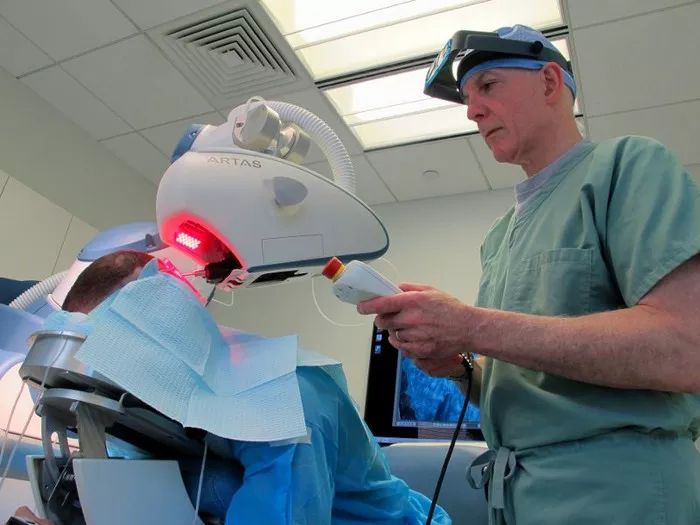Hair transplant surgery is a significant step toward restoring hair growth and improving self-confidence. However, to ensure optimal results, it’s essential to prepare adequately. One crucial aspect of preparation involves dietary choices. Certain foods can negatively impact the surgery’s success and the healing process. This article outlines six foods you should avoid before undergoing a hair transplant, providing reasons and alternative dietary recommendations.
1. Sugary Foods
Impact on Blood Sugar Levels
Consuming sugary foods can cause spikes in blood sugar levels. These fluctuations can affect the body’s ability to heal and increase the risk of infection. High blood sugar levels can also impair blood circulation, which is crucial for the newly transplanted hair follicles to receive the necessary nutrients and oxygen.
Increased Inflammation
Sugar is known to promote inflammation in the body. Inflammation can hinder the healing process post-surgery and may cause complications. Foods high in sugar include candies, pastries, sodas, and other sweetened beverages.
Alternatives to Sugary Foods
Instead of sugary snacks, opt for natural sweeteners like fruits, which provide essential vitamins and minerals. Fruits such as berries, apples, and oranges are excellent choices. They not only satisfy your sweet tooth but also contribute to overall health.
2. Processed Foods
Nutrient Deficiency
Processed foods are often low in essential nutrients required for healing and overall health. These foods typically contain high levels of unhealthy fats, sodium, and preservatives, which can negatively affect the body’s ability to recover after surgery.
Increased Risk of Complications
The consumption of processed foods can lead to increased inflammation and a weakened immune system. This makes the body more susceptible to infections and complications post-surgery. Common processed foods include chips, frozen meals, and fast food.
Healthier Alternatives
Choose whole, unprocessed foods such as vegetables, whole grains, and lean proteins. These foods provide the necessary nutrients to support the healing process and promote overall well-being.
See Also: The 6 Best Robotic Hair Transplants
3. Red Meat
High Saturated Fat Content
Red meat is high in saturated fats, which can increase cholesterol levels and inflammation in the body. Elevated cholesterol can affect blood flow, crucial for the healing of transplanted hair follicles.
Digestive Issues
Red meat is harder to digest, and consuming it can lead to gastrointestinal issues. This can be particularly problematic before surgery, as digestive comfort is essential for overall health and recovery.
Better Protein Sources
Consider lean protein sources such as chicken, turkey, fish, or plant-based proteins like beans and lentils. These options are lower in saturated fats and easier to digest, providing the necessary protein for tissue repair and growth.
4. Alcohol
Dehydration
Alcohol consumption can lead to dehydration, which negatively impacts the healing process. Proper hydration is vital for maintaining healthy skin and supporting the recovery of hair follicles.
Blood Thinning
Alcohol acts as a blood thinner, which can increase the risk of excessive bleeding during surgery. This can complicate the procedure and affect the final results.
Healthy Hydration Choices
Instead of alcohol, drink plenty of water and herbal teas. Staying well-hydrated helps ensure the skin and hair follicles are in optimal condition for surgery and recovery.
5. Spicy Foods
Increased Inflammation
Spicy foods can cause inflammation in the digestive tract and may exacerbate pre-existing inflammatory conditions. This inflammation can negatively impact the healing process post-surgery.
Digestive Discomfort
Spicy foods can lead to digestive discomfort, including heartburn and indigestion. It’s essential to maintain digestive health before surgery to ensure the body is in the best possible state for recovery.
Mild Alternatives
Opt for mild-flavored foods that are gentle on the digestive system. Herbs such as basil, parsley, and thyme can add flavor without causing inflammation or discomfort.
6. Caffeinated Beverages
Increased Heart Rate and Blood Pressure
Caffeine can increase heart rate and blood pressure, which is not ideal before surgery. Elevated blood pressure can increase the risk of complications during the procedure.
Dehydration
Caffeinated beverages, including coffee and certain teas, can act as diuretics, leading to dehydration. As mentioned earlier, proper hydration is crucial for the healing process.
Non-Caffeinated Options
Choose non-caffeinated herbal teas or water to stay hydrated. Chamomile tea, for instance, can be a soothing alternative that supports relaxation and overall well-being.
Conclusion
Proper dietary choices play a significant role in preparing for a hair transplant surgery. Avoiding sugary foods, processed foods, red meat, alcohol, spicy foods, and caffeinated beverages can significantly impact the success of the surgery and the speed of recovery. Instead, opt for a balanced diet rich in whole foods, lean proteins, fruits, and vegetables to ensure your body is in the best possible condition for the procedure. By making these dietary adjustments, you can support the healing process and achieve optimal results from your hair transplant.
Related topics:

